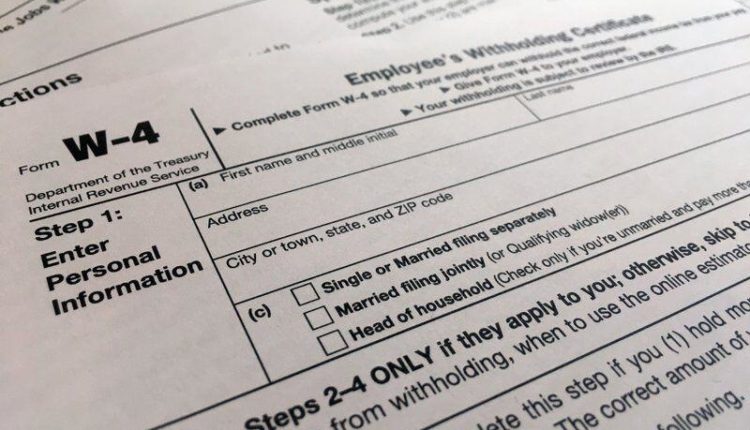LOUISVILLE, KJ. (WDRB) – Americans have until Monday, May 17, to file their tax returns for 2020 – or risk a fine.
The IRS has extended the traditional tax filing deadline from April 15 to May 17 this year, giving most taxpayers an extra month to file returns amid a series of pandemic-related policy changes covered by the U.S. $ 1.9 trillion rescue plan.
According to the data of the Tax Administration, as of May 7, it processed about 116 million applications Fox Business report. By comparison, it accounted for about 126.7 million returns. The agency has issued approximately 84 million returns so far, which is 3.2% less than at this point in 2020.
If you haven’t signed up yet, here’s what you need to know:
Taxpayers can request an extension until October 15
If you haven’t filed a tax yet, don’t worry – there is still time to request an extension until October 15. If you are an individual, you can apply for an extension online by filling out form 4868 using IRS Free File Tool. The form requires an estimate of your tax liability.
But beware, if you owe taxes to the federal government, payments are still due on May 17th. The IRS offers some payment plans to individuals who cannot pay their taxes in full.
If possible, you should file a tax online
Electronic tax filing is the fastest way to get your money back, according to the IRS, especially since the agency is breaking through the backlog of papers created last year during the coronavirus pandemic.
The agency says it issues about nine out of 10 refunds in less than 21 days. In 2018, about 90% of taxpayers filed a return online.
There is still time to contribute to your IRA
The deadline for Americans to contribute to their IRA by 2020 is May 17. The maximum annual contribution for traditional and Roth IRAs for most Americans is $ 6,000. If you are over 50, you can add an additional $ 1,000.
Traditional IRA contributions can be tax deductible – withdrawals are usually taxed – although there are several complicating factors, including income limits and whether you or your spouse are covered by a workplace retirement plan.
For example, your deduction may be limited if you or your spouse are covered by a retirement plan at work and your income exceeds certain levels. However, your deduction is allowed in full if you are not covered by the pension plan according to your job.
Your refund may be delayed
The IRS holds more than 29 million tax returns for manual processing, delaying returns for many low-income Americans, according to its internal oversight body.
“As might be expected, IRS employees are thin working through the manual processing of these returns,” National Taxpayer Attorney Erin Collins wrote in a recent blog post. “So, if a taxpayer’s application is withdrawn for manual processing, there will be a delay.”
At least 8 million returns have been placed in “uncertainty” until an IRS employee can review them to ensure taxpayers receive the fully promised money from the incentive check. IRS officials are also calculating earned income tax and child tax – two tax credits for lower-income Americans, which have been expanded with President Biden’s $ 1.9 trillion coronavirus aid package.
In addition, 5.3 million paper applications for 2019 or 2020 are awaiting manual processing, while 4.7 million applications have processing errors or fraud identification problems that require a taxpayer response. The tax administration retained 11 million business refunds for manual processing.
“From a taxpayer’s perspective, their return seems to have fallen into a black hole: they don’t know what’s going on, when they’re going to get a refund, why it’s being delayed, or how to get answers or help,” Collins wrote.
In addition to the large number of applications for 2020 that require manual processing, the IRS is struggling with a large backlog of processed tax returns for paper for 2019 and the Herculean task of delivering millions of incentive checks.
Collins estimated that only 1 in every 50 calls to the IRS Customer Service Representative is answered.
Copyright 2021 WDRB Media and Fox Business. All rights reserved.

